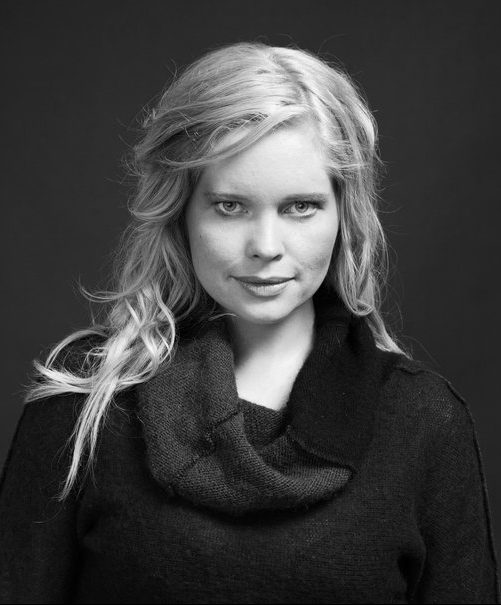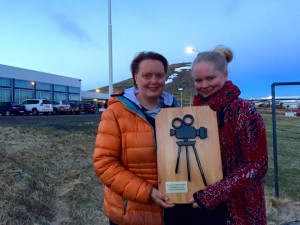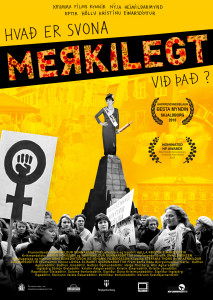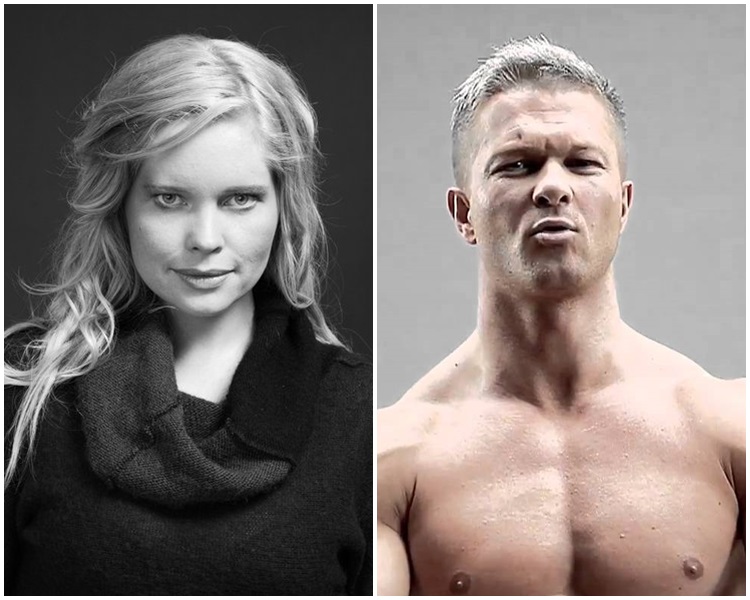Kitchen Sink Revolution is a new documentary film from director Halla Kristín Einarsdóttir, telling the story of the Women’s List, an Icelandic political party entirely made up of women. The film competed for „Best Nordic Documentary 2015“ at Nordisk Panorama and was also the „Pick of the Audience“ at Skjaldborg, the annual Icelandic Documentary Film Festival earlier this year. This week it will start showing in cinemas around Iceland, premiering in Kringlubíó on October 22nd. And the aim is to get 12,166 people to see it!
Why did you want to make “Kitchen Sink Revolution” (i. Hvað er svona merkilegt við það)?

“To me, it was a natural progression from my 2009 documentary “Women in Red Stockings” (i. Konur á rauðum sokkum) which concentrated on the Redstockings Movement in Iceland,” says Halla Kristín Einarsdóttir, the director of the film. “The Organization for Women‘s Candidacy (i. Kvennaframboðið) came about around the time that the Redstockings were waning but this candidacy was an incredible democratic experiment that lasted much longer than the women had anticipated to begin with. This story isn‘t told in any history books but the Women‘s List was in Parliament for sixteen years and a lot of the things that we take for granted today are things that these women initiated. Among other things is the fact that we can put our children to kindergarten and that it‘s not only men who make all the decisions, at least not in Reykjavík or the rest of Iceland. It‘s both a fun and interesting story and also unique so I think it‘s important that we cherish stories such as this, stories that tell us how our society has become the way it is. What did it take and why? Human rights don‘t just fall into your lap.”
What was it like meeting these women, did you recognize the society in which they lived at the beginning of the Women‘s Candidacy?
“It was of course interesting, these are all very interesting women. I was a child then and remember these times from a child‘s point of view, but this time I played the role of the listener. I allowed them to depict this era according to their memories and very soon I started reminiscing these times too and could even recollect the smell of the slush in the winter of 1982. There was definitely something powerful in the air in Reykjavík during those years.”
“I think it‘s important that we cherish stories such as this, stories that tell us how our society has become the way it is…Human rights don‘t just fall into your lap.”
Do you feel that this documentary is relevant to young people and the women‘s rights fight today? Is there any women‘s rights fight going on today compared to what is being described in the documentary?
“I feel that the film should be especially relevant to young people and those who are starting to wonder about human rights today. We now have a generation of adults who might not have heard of the Women‘s List and there‘s absolutely no need to keep inventing the wheel. I also believe that we could draw strength from history as well as learn from the methods that have already been tried and tested there, since we can now look at it from some distance. I think that the older generation will enjoy reminiscing these times although we‘ve reached modern-day by the end of the film. Not that I‘m encouraging a formation of a new Women‘s Candidacy now (although we shouldn‘t write that idea off) but there are so many things echoing throughout those four decades that the film covers; we‘re still fighting some of the same old phantoms, only in a slightly different shape and form. However, I do not worry at all about today‘s women‘s rights fight and think that young women are getting into it now with diverse strength points.”
What was it like selling this idea, raising the money for it and getting people involved?

“I was lucky enough to have a really strong producer with me, who has been the pillar of this project. She did a lot of the cinematography herself and helped with the editing as needed, just the way things are done in the Icelandic film industry. Her name is Hrafnhildur Gunnarsdóttir and she oversaw most of the financing. It went both well and not so well. Hlaðvarpinn, the Women‘s Culture Fund, paved the way. Then we got a production grant from the Icelandic Film Centre, RÚV (The Icelandic National Broadcasting Service) was involved and Reykjavík City has been very helpful. We were trying to secure funding of a rather unusual project during tough times, which resulted in all sorts of weird obstacles so the whole process took much longer time than we wanted but the people working with us have been fantastic and a lot of them went out of their way to make this possible, both men and women.”
Did your ideas about the Women‘s Candidacy and the Women‘s List change at all during the filming, or your opinions of Icelandic politics then and now?
“You could say that as the filming progressed I realised more and more what an extraordinary experiment this had been. It‘s obviously a documentary about a clash with the establishment and what happens when a grassroots movement charges directly into the hierarchy and I think it‘s incredible how big a role the actual method and the platform actually play.”
Recently, there’s been a lot of discussion about gender inequality within the film industry in Iceland, have you experienced it?

“Yes, I remember when I was a 25-year-old graduate from both the Iceland Academy of the Arts and the Icelandic Film School and went to all the production companies to try to get a small job at just any film project. No one as much as looked me in the eyes while the guys I had been studying with, and were no better at things than I, were simply summoned and hired to do editing or to direct TV ads and got all sorts of opportunities without having to make much effort. The most memorable reply I got was: “I don‘t hire girls, they always start crying.” Then there‘s the concrete fact that most of the financial resources go into projects where men are in charge. And a little bit more variety in the subjects of films and TV material wouldn‘t exactly kill us, would it?”
Well, the audience of Skjaldborg definitely liked the film so that should be an indicator that people will enjoy watching it. But why have you aimed for such a specific number of viewers?
“I‘m so relieved and pleased that people seem to connect with this film and I‘m overjoyed and grateful that we got that award at Skjaldborg. But apparently it‘s considered rather good to get an attendance of 1,000 people for a documentary in Iceland so we want to challenge people to get up from that couch and go see “Kitchen Sink Revolution” at the cinema. Our aim is to get 12,166 people to see it on the big screen and the reason for this particular number is that Gilzenegger‘s “Life Skills” (i. Lífsleikni), a film with such an awful message, got an audience of 12,165 so we want to beat his record!”
Main photo: Halla, to the left, and a screen shot of Egill Einarsson. Egill was nicknamed Gillz or Gillzenegger when he was the frontman of the band Merzedes Club (according to Wikipedia).


